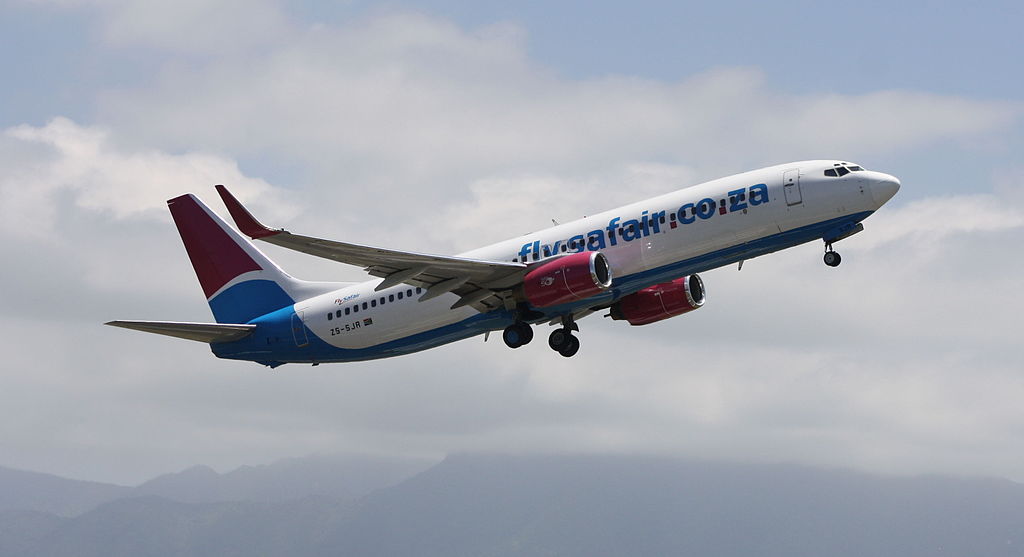The popular low-cost South African airline, FlySafair is facing legal battles due to its ownership structure. The South African International Air Services Council (IASC) has found the airline to be non-compliant.
What is FlySafair’s non-compliance about?
As previously reported by The South African, the IASC ruled that FlySafair’s shareholding structure contravenes South African law, which places a limit on foreign ownership of domestic airlines at 25%. This ruling came after competitors Lift and Airlink expressed concerns regarding FlySafair’s ownership structure.
FlySafair’s non-compliance is mainly due to its violation of this law, as Ireland-based ASL Aviation Holdings primarily controls it. ASL’s total ownership is 74,86%, which significantly exceeds the legal foreign ownership limit.
Competitors Airlink and Lift have argued that FlySafair’s ownership structure provides it with an unfair advantage in the market, especially given FlySafair’s recent application to expand routes to Zimbabwe.
FlySafair’s market share
FlySafair has grown significantly since its 2014 relaunch and now commands an estimated 60% of the South African domestic flight market. This growth is notable given the airline’s rapid rise in the highly competitive low-cost flight sector.
FlySafair’s chief marketing officer, Kirby Gordon, has criticised the motives of Airlink and Lift, suggesting that these airlines are attempting to leverage the ownership issue to gain a competitive edge.
Markedly, the restrictions limiting foreign ownership to 25% in South African airlines are among the strictest in the world. Many countries allow foreign ownership up to 49% to encourage foreign investment and recapitalisation in their aviation sectors.
What are the possible consequences?
FlySafair’s non-compliance could lead to its licence being suspended or revoked. It could also result in financial penalties.
With FlySafair’s dominance, a potential shutdown would likely lead to higher prices and reduced competition. Travel costs could spike as competitors struggle to meet the increased demand, especially during peak travel periods like the festive season.
For the time being, FlySafair is operating without any interruptions. However, the airline’s future hinges on how quickly it can resolve the ownership structure issues pointed out by the IASC. Experts believe that an immediate shutdown is very unlikely.
If the airline encounters more sanctions, it will have a chance to fix compliance problems without affecting flight schedules.
Do you often use this airline?
Let us know by clicking on the comment tab below this article.
You can also email info@thesouthafrican.com or send a WhatsApp to 060 011 021 1.
Also, follow @TheSAnews on X and The South African on Facebook for the latest news.
